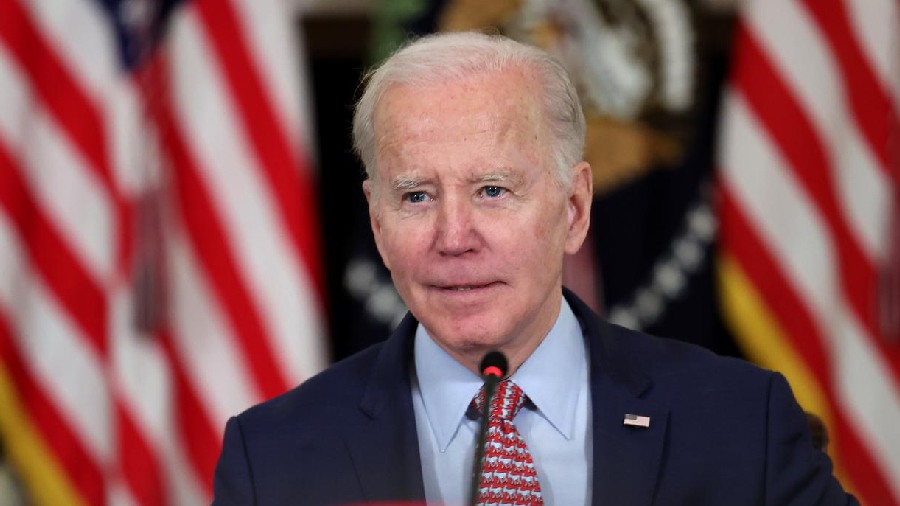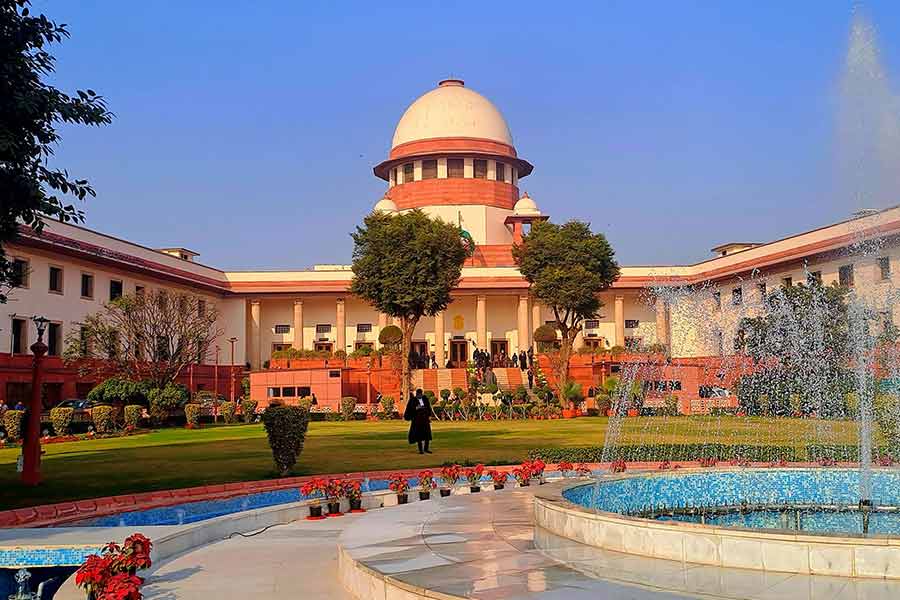US President Joe Biden will head to Northern Ireland on Tuesday to commemorate the 25th anniversary of the Good Friday Agreement, the deal that ended some 30 years of civil conflict.
During the visit, Biden will also meet with British Prime Minister Rishi Sunak. He is also scheduled to deliver an address at Ulster University in Belfast on Wednesday. It is the first visit by a US president to Northern Ireland in 10 years.
Biden's visit, and the anniversary, come at a delicate time for Northern Ireland, as it grapples with the repercussions of Brexit on its borders and trade dealings.
What is the Good Friday Agreement?
The 1998 deal was the culmination of years of talks. Chaired during their home stretch by the United States, the talks resulted in a truce agreed by the UK and Irish governments, as well as Northern Irish political party representatives, including the militant Provisional Irish Republican Army (IRA).
The agreement ended the decades of violence known as the Troubles. The conflict pitted largely Protestant Unionists who preferred to stay part of the UK against largely Catholic Republicans, who wanted to be united with the Republic of Ireland in the south.
The years of conflict often spilled out into mainland Britain, with terrorist attacks striking London.
The shadow of the Troubles has returned to Northern Ireland since Brexit made alterations to the conditions upon which the 1998 deal was based.
With the UK no longer part of the European Union, its trade agreements, and hence those of Northern Ireland, with the bloc were upended. That included EU-member-state Ireland, Northern Ireland's most important neighbor.
"While it is time to reflect on the solid progress we have made together, we must also recommit to redoubling our efforts on the promise made in 1998 and the agreements that followed," Sunak said in a statement marking the agreement's anniversary.
How does the 'Windsor Framework' seek to smooth Brexit tensions?
In February, the UK and the EU reached a new post-Brexit deal for Northern Ireland.
Dubbed the "Windsor Framework," the plan aims to scrap some checks on goods crossing from the rest of the UK into Northern Ireland, and give Northern Irish lawmakers greater say over future EU-related rules.
However, it has yet to garner the needed endorsement at home from the pro-UK Democratic Unionist Party (DUP), with tensions about the deal still high in Belfast. The party said Biden's visit would not pressure it to change course.
On Monday evening, and ahead of Biden's visit, masked people attacked a police vehicle with Molotov cocktails and other objects at a parade opposing the Good Friday anniversary celebrtions in Londonderry, also known as Derry.
The British intelligence agency has recently increased Northern Ireland's threat level from domestic terrorism to "severe," a sign it believes an attack is highly probable.
Biden to reconnect with Irish ancestry
Biden, who has always been proud of his Irish ancestry, plans to use the trip to reconnect with his roots. He is due to spend three days in the Republic of Ireland and address the parliament in Dublin.
The US president is scheduled to meet distant cousins in County Louth on Wednesday. He also plans to visit the western county of Mayo, where his great-great-grandfather grew up, and address thousands of residents there.
Moreover, in the grander scheme of the much anticipated 2024 US presidential election, Biden's visit to Ireland is seen as an endorsement to the American dream of immigrant success.
Like Biden's ancestors, millions of Irish people crossed the Atlantic in the late 19th century and early 20th century, escaping the famine at home and seeking a better future.










